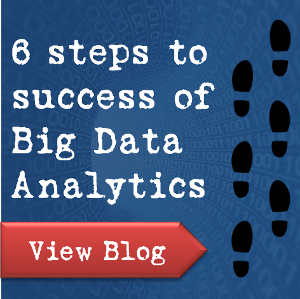The New Frontier of Healthcare Data Analysis
Big Data is the name of the game in virtually every industry under the sun; it is the modern method for staying competitive and relevant across industries. The fact that healthcare now similarly relies on big data, means that the industry is changing as rapidly as others within the commercial marketplace.
Thus, the way society gives and receives medical care is changing faster than ever before. Here are some of the main things to know about big data and its impact on healthcare.
Why it matters
Despite the advancement and prevalence of tech everywhere, healthcare has been slow to adopt the changes.
Just last year Bernard Marr wrote for Forbes, A staggering 80% of medical and clinical information about patients is formed of unstructured data, such as written physician notes, consultant notes, radiology notes, pathology results, discharge notes from a hospital, etc.
Big data is changing that, crafting it into a more organized, accessible system, which has obvious implications for everyone within the system. Data analysis will allow for a more consistent, usable system.
As the healthcare educators at Duquesne University have pointed out, With cloud-based storage, health-care organizations have access to real-time data. The AHIMA (American Health Information Management System) approved a call to improve the methods used to handle data in the healthcare industry in 2017.
Change is certainly already happening, there are pioneers such as Open Group Healthcare Forum who are working to utilize IT in a way that will allow them to combat the lag in healthcare realty resources.
The Healthcare Forum exists because there is a huge need to architect the healthcare enterprise, which is approaching 20 percent of the gross domestic product (GDP) of the economy in the US, and approaching that level in other developing countries in Europe. There is a general feeling that enterprise architecture is somewhat behind in this industry, relative to other industries, noted the director, Dr. Jason Lee.
Data analysis is what will keep the healthcare industry relevant and cutting-edge.
How it’s collected
There are two primary ways that big data is collected from individuals to be stored and utilized within the industry.
There is the primary method, which essentially requires no longer accepting the former methods of handwritten, personalized note taking. It means that unstructured data, which was mentioned above, is no longer accepted as the industry standard. Instead, there is an overarching commitment to utilize tech to collect and store patient data in a manner that is structured.
According to the Agency for Healthcare Research and Quality, Health care involves a diverse set of public and private data collection systems, including health surveys, administrative enrollment and billing records, and medical records, used by various entities, including hospitals, CHCs, physicians, and health plans.
The secondary method that is used is collecting data directly from wearable devices. The data that people upload themselves like the nutritional value of their foods on healthcare apps, as well as the data that is collected automatically like sleep and exercise patterns, can and is being sold by tech companies.
Additionally, the industry sits on the cusp of clinical grade wearables being utilized to assist in monitoring individuals’ healthcare.
This year, clinical-grade wearables will move beyond the experimental phase to begin the early stages of their impending explosion on the medical market, triggering the healthcare industry’s next paradigm shift as this technology continues to be adopted, writes Carla Kriwet, Chief Business Leader of Philips Connected Care & Health Informatics, for MedCityNews.
How it’s utilized
As Mikkie has pointed out for MyTechlogy, there are three primary changes that this move in the industry will surely prompt: how research and medicine is done, how patients are treated, and how AI and predictive analytics are utilized.
Research and Medicine: A researcher trying to cure cancer, or a doctor analyzing a patient for the right diagnosis is handicapped by every piece of the puzzle missing. They are best equipped to do their jobs when they have ease of access to large portions of data.
In another article, Marr wrote, Big Data works on the principle that the more you know about anything or any situation, the more reliably you can gain new insights and make predictions about what will happen in the future. By comparing more data points, relationships will begin to emerge that were previously hidden, and these relationships will enable us to learn and inform our decisions.
Patient Experience: In most industries, organizations remain competitive by providing an experience for their customers that differentiates them from competitors. Successful businesses are those that can offer something distinctive, and medical professionals are not immune from industry competition.
AI and Machine Learning: The implications of this extend beyond the present moment for providers and patients alike. Using data analysis within the healthcare industry will provide a more effective way to understand which individuals are most at risk for future ailments and how artificial intelligence and machine learning can cut costs and participate in quality care.
Even with the advances made, at this point, there are some challenges to the way that possibilities concerning utilization. For example, experts in medical tourism are quick to point out, Internationally traveling medical patients may need to bring a comprehensive list of all their symptoms, recent tests, family history, and blood work: also known as your Health History Information Sheet (HHIS). This will help the doctor you are traveling to have a full understanding of your needs.
Despite challenges such as the aforementioned though, there are conceivable future outcomes where the data utilized by healthcare transcends even international borders. And that’s the whole point.
The New Frontier is a Smart Frontier
While no one could make the argument that healthcare’s utilization of big data has been cutting edge. Its foray into the world has absolutely begun and will continue to take shape in the coming months and years, and that’s an awesome thing.
In the words of the founding director of the Icahn Institute for Genomics and Multiscale Biology at New York’s Mount Sinai Health System, The role of big data in medicine is one where we can build better health profiles and better predictive models around individual patients so that we can better diagnose and treat disease.
Whenever an entire industry begins to operate via a different model, there will be challenges, and in healthcare, especially, there are a lot of ever-changing dynamics. However, data provides the best, most current way to maximize resources. It puts more tools into the hands of providers, and better care into the lives of the patients they treat.


 Noah
Noah







